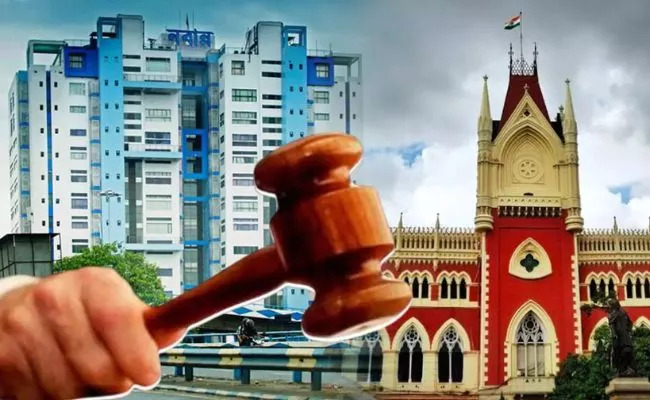Shubhman Gill slams maiden Test 200 in 311 balls against England
.gif)
.gif)
HC gives conditional permit for dharna near Nabanna, asks state to issue guidelines on protest locations

The Group-D Joint Forum, which had previously sought permission to hold a dharna near the West Bengal government headquarters, Nabanna, has received conditional approval from the Calcutta High Court. Justice Tirthankar Ghosh of the Kolkata High Court issued the order, allowing the protest but with certain restrictions to maintain public order and security in the area.
Initially, the Forum had requested permission to conduct their protest at the bus stand near Nabanna from November 11 to 13. However, the court, upon review, modified the protest’s location and duration. According to the order issued on Friday, the sit-in will now take place at the Mandirtala bus stand on November 11 and 12. Additionally, the court stipulated that after concluding the sit-in, only five members of the Forum may visit Nabanna to submit a memorandum of their demands to the Chief Secretary.
This judicial intervention became necessary after the protesters’ request to stage the sit-in was denied by the police, prompting the Forum to approach the High Court. The state government defended its position, arguing that protests at the Nabanna bus stand could disrupt official activities and security arrangements in the area. However, Justice Ghosh observed that the Group-D Forum is not affiliated with any political party and merely seeks to express its concerns through a non-political protest. He concluded that the police should not prevent such peaceful protests without a valid reason.
During the hearing, the state government proposed an alternative location, citing security concerns. In response, Justice Ghosh directed the government to release clear and official guidelines on permissible protest locations in the city to prevent similar disputes in the future. This order intends to create transparency for groups wishing to stage protests while allowing the government to maintain security and order.
The court’s directive also instructs the state government to promptly issue these guidelines so that citizens are informed about designated areas for public gatherings, helping maintain a balance between the right to protest and public security concerns.